You get up in the middle of the night and struggle to unzip the loudest tent zipper on the planet, which echoes across the land and gets stuck every two inches. Once you create a slit barely big enough to birth yourself through, you inevitably trip on the threshold on the way out. Of course, you are barefoot and step cautiously but clumsily onto a mixture of dirt, ash, wood splinters, pebbles, and something mysteriously moist. This all takes place before you expose the most vulnerable part of your anatomy to the elements and take the longest pee of your life into a bush under the moonlight. Paranoid and scared, you look over your shoulder and wonder what all those mysterious animal sounds might be and how close they are.
Dawn finally arrives after an eternal night, and the inside of the tent is lit up like a photo studio from just one beam of sunlight, diffused by material as thin as the finest silk. You struggle to roll out of bed after a terrible night’s sleep, perhaps the worst you’ve ever had. Clearly, the air mattress had a microscopic leak, and you spent the night in the clutches of a plastic Venus fly trap, which slowly suffocated and swallowed you whole. Throughout the night, you either froze or sweated to death in your twisted sleeping bag coffin. You wondered how just one sharp rock beneath you managed to wedge itself directly into your hip no matter how or where you moved.
You fumble around in what seems like a ransacked studio apartment, even though you have only been there for one day, searching for your toiletry bag. Found deep within a pile of clothes, you find your bag, already open, and your toothbrush, which is slightly slimy from the tube of sunscreen that exploded onto everything. To successfully brush your teeth, you must take one of your many camping journeys to walk what seems like half a mile in your pajamas to find one of the several shared and surprisingly camouflaged water spigots. These fixtures are special. They are designed in such a way that they don’t stay on by themselves but also perpetually leak. When they do turn on, they are like firehoses that splash muddy toothpaste and whatever stranger’s dinner dregs were left in the rock drain below onto your legs and feet. Quick, rinse and spit because an impatient stranger just snuck up with a dirty pan covered in sticky and burnt eggs that must be washed pronto.
You arrive back at camp, and the only thing on your foggy, unrested mind is coffee. You begin your search on the picnic table, where you discover that someone left out half a bag of marshmallows which the raccoons ate at precisely 2:23 am. You know this because they woke you up, and you looked at your watch and couldn’t go back to sleep. You can’t determine if that noise was right before or right after they tore open your plastic trash bag hanging from a tree and very carefully carried each piece of garbage, egg shells, empty tuna cans, and used utensils and placed them randomly all over the campsite, like a contemporary art installation. Once you do eventually manage to find a bag of damp, partially closed coffee grounds, you heat up some water. You proceed to brew up a thermos of tongue-scorching, hastily measured, black-as-soot, gritty, bitter coffee that you sip out of a slightly dirty Styrofoam cup, and it gets cold from the air temperature before you can finish it.
Although I prefer the ultra-pro move not to shower at all while camping, you may, if you must, shower every few days in one of the few public facilities located a substantial distance from your campsite. After waiting an hour in line for the mother and her four crying kids to finish their group shower, you step into a steamy sauna, where every possible surface is wet and smells like other people’s body wash and body odor. You strip down to just your throwaway flip-flops so you can avoid your feet from making contact with the gross slimy concrete floor and metal drain cover, aka spider sanctuary. And, using a quarter you had to borrow from your brother to activate two minutes of wildly fluctuating water temperature and pressure, you lather up and frantically scrub like you are trying to win a Guinness Book of World Records Award. Just as you are almost finished rinsing off except for a bit of stubborn soap left in your ear, the water shuts off. Perfect timing. This moment of near victory is followed by the realization that you forgot a clean towel back at the campsite. So, you make do with dirty clothes to dry yourself with and then try to balance on one foot so you can put your underwear on without touching the leg openings with your other wet foot. Eventually, you get dressed, and all of your clothes stick to your damp body. You open the door, met with windy, cold air, and make your way back to the campsite, witnessing your momentarily clean feet immediately get dirty on the way.
You spend your day moving your fold-up camping chair a few feet here and there to stay in the minuscule amount of shade that the pop-up canopy provides when it isn’t blowing away or being destroyed by the wind. You also nap. You are perpetually hungry and eat more than usual because some hard-wired and primal survival mechanism is activated when you spend days outside. Lucky for you, there are bags and bags of salty snacks at your disposal. You day drink, well, because it feels great and you are on vacation. You play games to pass the time. You chit-chat with your friends and family. The day passes, and the sun goes down. You witness the most beautiful sunset you can remember.
As evening arrives, you put on warmer clothes and make a campfire, arguing over which is the best design method, the teepee or the log cabin. Once it gets going, you sit with your loved ones in a circle around the fire and just stare at it uncontrollably. You are mesmerized and instantly calm. Your nervous system turns way down as if by black magic. You may look away for a few moments now and then, and when you do, you instinctively look up at the sky, at the billions of stars you haven’t seen since the last time you camped. You gasp. You sigh.
That story is not a universal one. It is one that will resonate with many people and not at all with others. It will seem absurd and foreign to some and endearing and familiar to others. What accounts for the disparity is the focus of this essay.
My parents began camping when I was an infant. Since then, I’ve tent-camped, almost without exception, at least once a year for nearly five decades. Simply knowing this fact provides a clue about my family’s socio-economic status. It would be a safe and, in this case, correct assumption to believe that my parents belonged to the working/middle class. The popularity of camping among different socio-economic demographics is worth considering. In 2019, 48% of the people who camped had an entire household income of less than $50,000 annually. Another 20% had a yearly household income of $50,000-$74,999. Only 19% had a household income of over $100,000 per year, and my strong inclination is that families with the highest incomes tend to do more “glamping” than camping.
In my conversations with people I have met over the years, I find that if the topic of camping arises, there is very little ambiguity in people’s opinions on the matter. Camping appears to be binary. You are either a camper or you are not. Like religious affiliation, you are often born into camping, but conversion is possible, just much less likely. I remember in early adulthood, particularly in graduate school as an artist, where I became much more aware of my own socioeconomic status, partially by finding out which other art students in my cohort camped. In general, the “private school kids” who were groomed for art school never camped a day in their lives. I grew up in a small, working-class town and attended public schools, so until my adult life, I had never really socialized with wealthy people. Up until that point, I had mistakenly thought that everyone had camped.
The desire to camp is not simply a matter of trivial preference the way that ice cream flavors are. An entire ethos and set of values embedded in the camping activity reflect a quintessentially working/middle-class ethics. I’ve met several people who “try” camping because someone talked them into it. They hate it. Camping can turn people from two ends of the economic spectrum away. On the impoverished end, it is fairly apparent that living outdoors in a “natural” environment in a tent when it is not absolutely necessary does not sound appealing, nor is it even possible because campsites are highly competitive to reserve, cost a modest amount of money they do not have to spend on leisure and require vacation time. On the other end of the economic hierarchy, very wealthy folks don’t usually camp because the activity is beneath them in several ways. The dirt, the insect bites, the many discomforts I described earlier, and the fact that they prefer to be pampered by their wealth are all understandable reasons to avoid such activity.
Being a camper indicates that you have a particular kind of grit. It means you not only handle discomfort but that you willfully submit yourself to challenging conditions, lean into them, and embrace them for a payoff. There is a certain toughness embedded in camping. There is also respect for our place within a natural environment and a recognition that heartiness is cultivated through physical challenges placed on our bodies, unlike those found in an air-conditioned gym.
Camping triggers real physiological and psychological changes that I can only assume tap into evolutionary adaptations. Many studies track physiological benefits caused by spending time in nature. Anyone who camps regularly has noticed that they will be hungry more than usual. The experience of eating a hot meal before it gets cold, almost no matter what it is, while camping is special. A very simple meal can be whole-bodily experienced in a way that beats any overly manicured and plated fine cuisine, hands down. While camping, our senses are heightened in a way that cannot be manufactured elsewhere. The constant exposure to fresh air, quickly changing weather, sun, and shade all contribute to an elevated sensitivity to the environment that isn’t always immediately and consistently “pleasant” but has positive effects on our hormones.
I took my children camping when the oldest was three years old and the other was six weeks old. Now twenty and seventeen years old, they love camping, and that makes me quite happy. I feel like every parent feels when they know their children can swim in the ocean. I do not want to suggest that there aren’t other meaningful ways to build resiliency and a sense of respect for one’s place in the universe. Still, I do suspect these values and skills correlate, to a significant degree, with one’s socioeconomic class.
It must be apparent by now that I cannot mask my bias or judgment on the issue, nor do I wish to. Many of my fondest memories throughout life involve camping. Camping is not always pleasurable, but it is almost always good for you.

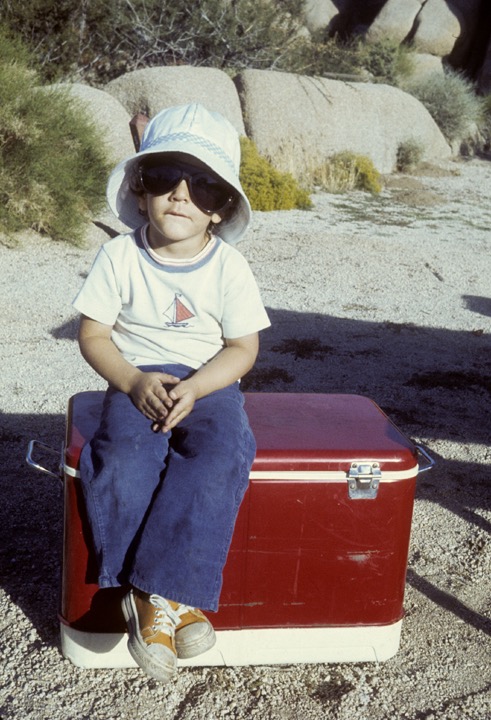
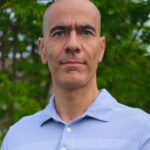

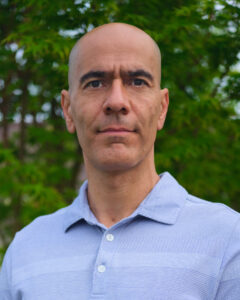
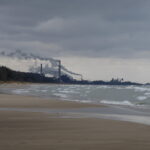
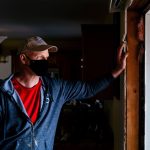
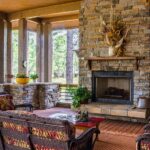
3 comments
Brian
Thank you for writing, this is very interesting.
Re: the income distribution, according to this:
https://www.statista.com/statistics/203183/percentage-distribution-of-household-income-in-the-us/
About 36% of households are below 50k, and also about 36% above 100k, compared to 48 and 19 for “campers”. My guess is the difference is really down to rural vs urban, as always, no? Rural areas are much poorer, with much easier camping access…
J Griesbach
Our family has camped many times and your description is pretty accurate. Add the mosquitoes and black flies and you have northern Wisconsin. It’s true it makes you tougher and more resilient and nothing beats it for frugal travel. We’d even take our camping gear on planes and set out for national parks without the expense of hotels and with the added bonus of beautiful views, sunsets, and an explosion of stars at night. Now with the kids gone, we’ve updated with a little camper trailer.
M. Miner
I was initiated into camping by my father, and continue to carry the torch with my own family. I love this piece.
The socioeconomic bit is interesting to me; that’s something I’ve never considered.
Comments are closed.